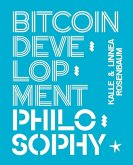Changing and managing a blockchain protocol requires a different approach than managing a centralized system. Since there is no centralized entity in a decentralized system, community votes handle tasks such as protocol upgrades, and the DAO is responsible for systematically performing this. In other words, the DAO is the entity that handles governance. However, Bitcoin, which is the beginning of blockchain, did not originally have a DAO. DAO is a governance entity that emerged after Ethereum that can handle smart contracts. So, does that mean Bitcoin does not need governance? If Bitcoin does not have governance, it will fall into the contradiction of major miners dominating the actual governance of Bitcoin. Therefore, BIP is a newly created formal governance process to promote the evolution of Bitcoin and prevent governance monopoly due to the centralization of miners. Ethereum's governance, where DAO operates as a full-fledged autonomous organization, imitates Bitcoin's BIP governance. Therefore, Ethereum governance is off-chain and goes through the EIP process corresponding to BIP. The Ethereum editor group participates in the Ethereum improvement proposal process. Achieving 100% on-chain governance is the ideal form of blockchain governance. However, even Bitcoin, which started with governance-less governance, uses off-chain governance methods for careful changes. Ethereum is no exception. Several layer 2 chains related to scalability are competitively developed. Ethereum also went through "The Merge," and the beacon chain, which was mainly responsible for governance, was removed. Now, it relies on off-chain governance methods to update the blockchain and govern dApps. This book diagnoses the current level of on-chain governance through the case of Internet Computer Protocol. It also talks about the hope of on-chain governance. Although the subtitle of this book is somewhat strong, future cryptocurrencies cannot talk about hope without establishing on-chain governance. In that sense, governance is an area that should be given more attention and development than the security, decentralization, scalability, and interoperability of blockchain. Rather, governance should be treated as a higher priority than these four elements. Therefore, the author argues once again. The winner of governance is the future conqueror of cryptocurrency.
Hinweis: Dieser Artikel kann nur an eine deutsche Lieferadresse ausgeliefert werden.
Hinweis: Dieser Artikel kann nur an eine deutsche Lieferadresse ausgeliefert werden.








